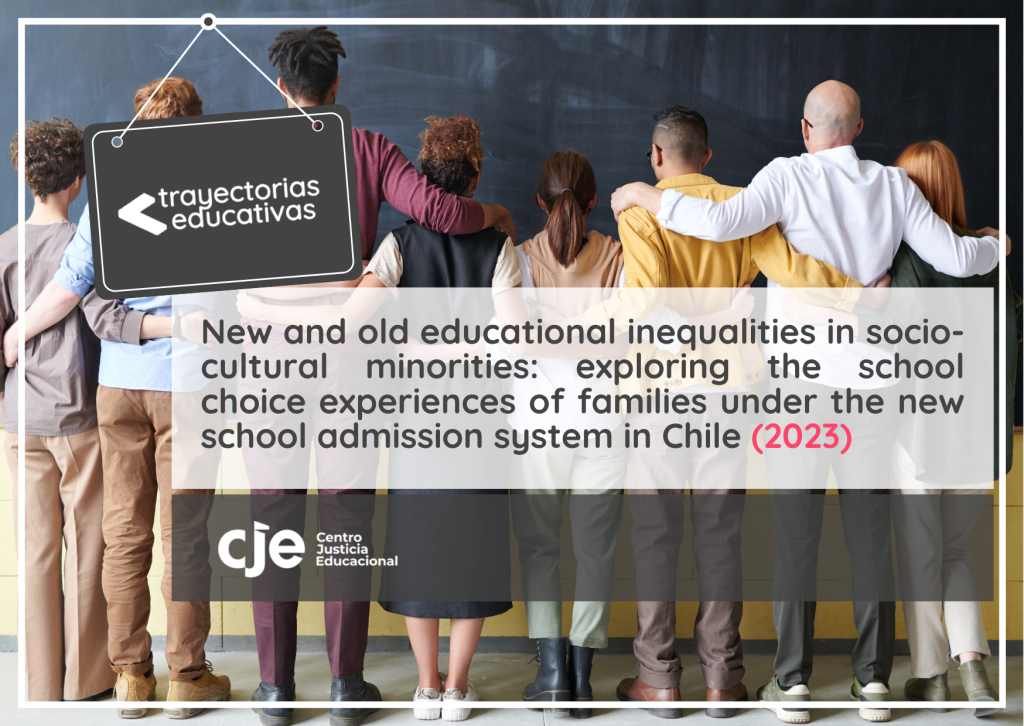AUTORES: Oyarzún Juan De Dios; Parcerisa, Lluís & Carrasco, Alejandro
AÑO DE PUBLICACIÓN: Marzo 2023
INSTITUCIÓN: CJE
DISPONIBLE EN:
https://www.tandfonline.com/doi/epdf/10.1080/02671522.2023.2188246?needAccess=true
RESUMEN:
In 2016, the Chilean Ministry of Education implemented the new School Admission System (SAS) designed with the goal of equalizing access to schools for the most disadvantaged families and reduce educational segregation. Yet it is not clear if the SAS is sensitive to socio-cultural minorities and their particular conditions. Hence, in this article we explore the school choice experiences of parents from three socio-cultural minorities under the new SAS: Mapuche – indigenous families, Latin American migrant parents, and parents with children with disabilities. Using an intersectional theoretical approach and a qualitative research design, we show that while in some cases the implementation of SAS impedes previous discriminatory processes, in others this new system alone has not yet overcome long-established and inherent educational inequalities in Chilean education. Besides, SAS has also resulted in new challenges in the school choice processes of these parents. Their experiences with the SAS express the intersection of different axis of inequality, according to the conditions and historicities of each group of families. Finally, we reflect on the challenges that the policy faces in regard to develop an educational policy that is fairer to all families, in the context of the unequal and marketized Chilean educational system.



